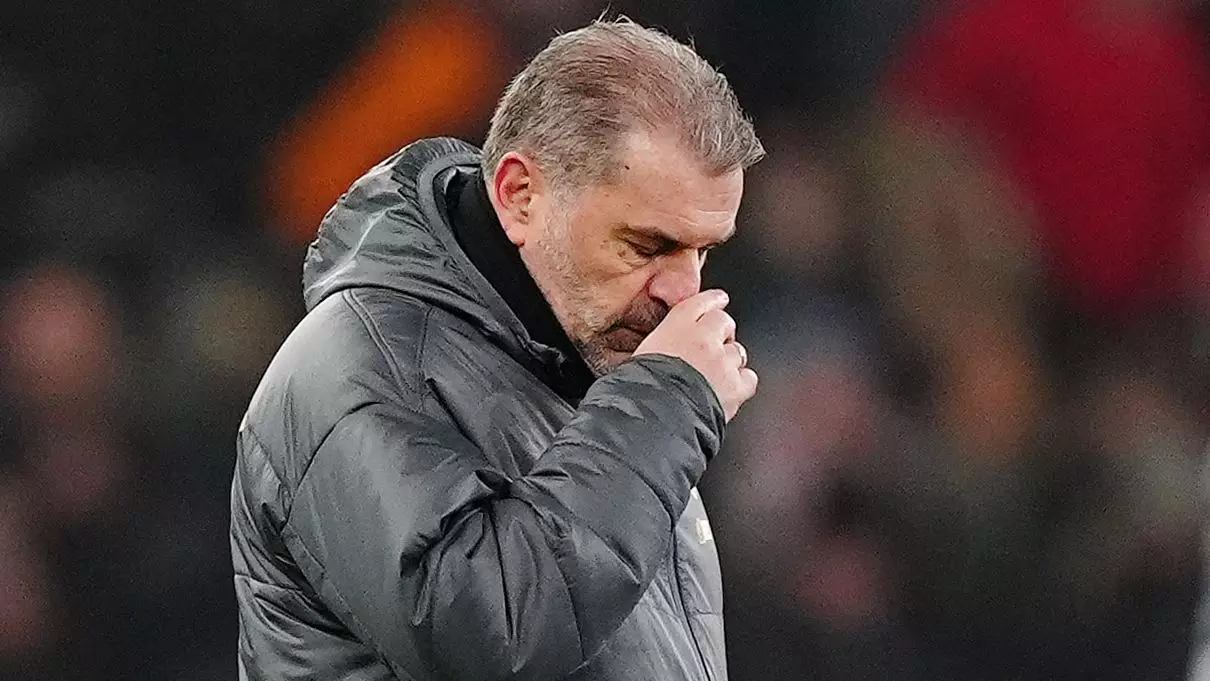The recent exit from two cup competitions in rapid succession has thrust Tottenham Hotspur into a state of anxiety and reflection. Manager Ange Postecoglou is now facing arguably the most challenging phase of his tenure, as the team grapples with the harsh reality of yet another season devoid of significant silverware. The defeat to Aston Villa in the fourth round of the FA Cup, following a humiliating exit from the Carabao Cup at the hands of Liverpool, has intensified scrutiny over the team’s performances and direction.
The fact that Tottenham succumbed to a 2-1 defeat at Villa Park—a mere three days post the staggering 4-0 loss against Liverpool—raises critical questions about the team’s resilience and mental fortitude. Postecoglou voiced his disappointment in a post-match interview with the BBC, acknowledging the importance of securing an early grip on the game and lamenting the missed opportunities that could have turned the tide in their favor. The sequence of these losses has also amplified the narrative of the team being in a downward spiral, especially with their current position in the Premier League at 14th place.
The trajectory of Postecoglou’s first season began on a promising note; an undefeated run that had them perched atop the Premier League standings gave fans a glimmer of hope. However, as the season progressed, the initial optimism has been overshadowed by increasingly lackluster performances. The weight of expectation intensified when Postecoglou had previously commented on his trend of winning in his second year as a coach. This self-imposed pressure now looms large, creating a palpable tension within the club and among its supporters.
A prominent factor contributing to Tottenham’s struggles this season has been the raft of injuries that have plagued key players. With crucial players like Cristian Romero, Dominic Solanke, and Micky van de Ven missing significant time, the squad’s depth has been severely tested. Despite these setbacks, Postecoglou has commended the efforts of the players who have soldiered on, noting their extraordinary commitment under trying circumstances.
However, commending the effort alone does not mask the reality that the team must rediscover its form and tactics. Postecoglou’s strategies have come under fire, especially as the players seem to struggle to adapt consistently to his style. The introduction of fresh talent, such as 19-year-old Mathys Tel, offers a glimpse of hope, yet it remains to be seen whether he can significantly influence the team’s fortunes in the final stretch of the season.
As Tottenham heads into a less congested schedule in the coming weeks, there exists a crucial opportunity for recovery and regrouping. Postecoglou has highlighted the necessity of utilizing this time wisely to reintegrate injured players and recalibrate the squad’s morale. Building a resilient mindset will be essential for the team’s ambitions, especially as they still have a shot at European competition with their progression to the round of 16 in the Europa League.
Though the domestic campaigns have taken a toll, the Europa League now stands as Tottenham’s beacon of chance for attaining major silverware—a target that has eluded them since 2008. The potential for a renewed focus on this competition could serve as a catalyst for the team, galvanizing both the players and the fan base as they strive to redefine their season.
The next few matches will serve as a litmus test for Postecoglou’s leadership and vision for Tottenham. Will he succeed in harnessing the squad’s remaining potential to reclaim a competitive edge, or will the mounting pressures sway the trajectory toward yet another trophyless season? As the clock ticks on his second campaign, the pragmatic adjustments and tactical acumen he displays in the coming weeks will determine not only his immediate future but also the club’s long-term ambitions. The resilience of Tottenham Hotspur hangs in the balance, awaiting the outcome of a pivotal set of challenges.


Leave a Reply